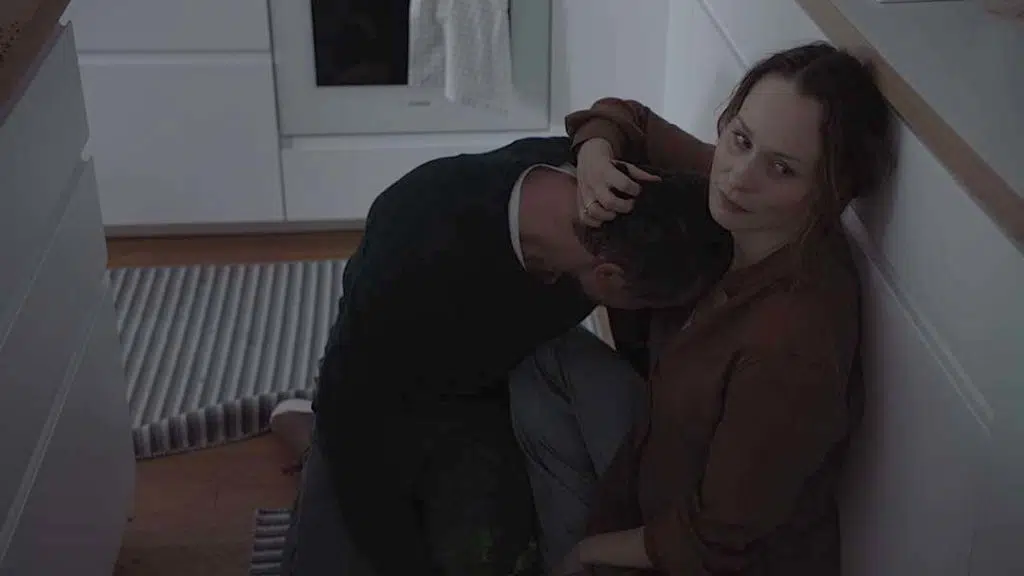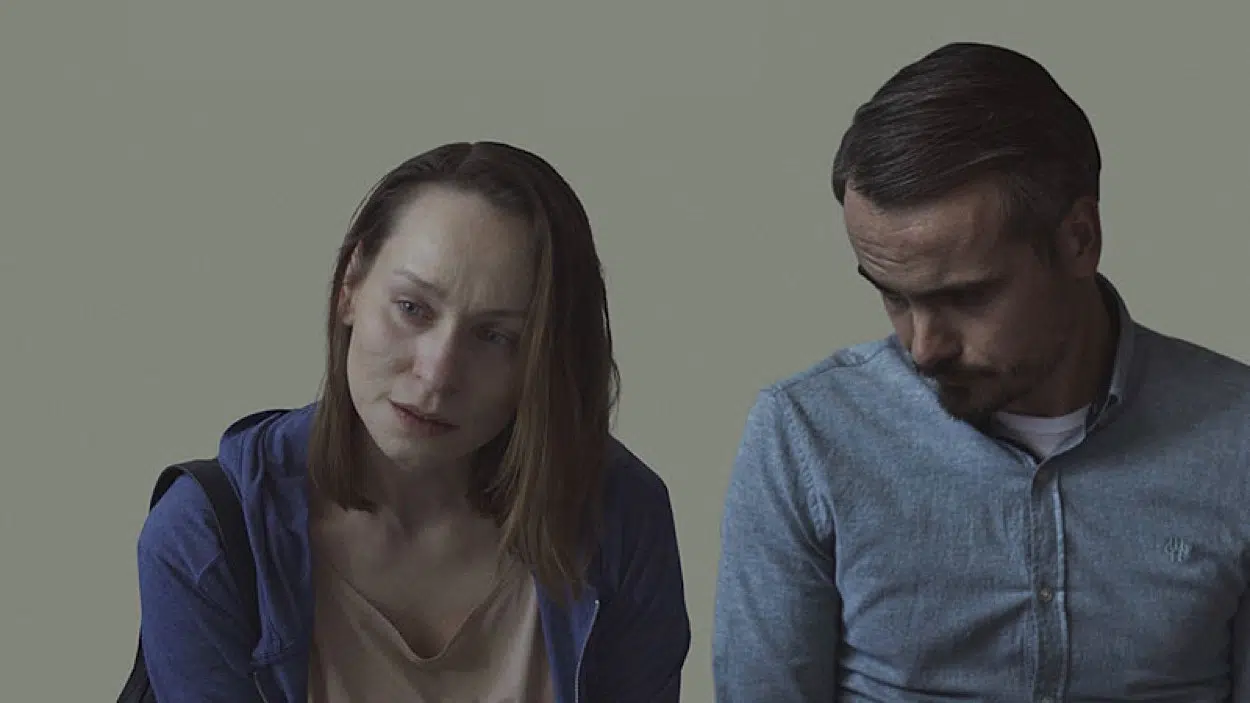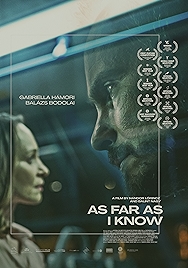At the Raindance film festival, London, UK, 27 October–6 November 2021
As Far As I Know (Legjobb tudomásom szerint in the original Hungarian) is the smart and subtle feature debut of Nándor Lörincz and Bálint Nagy, a writing/directing duo who have been working together for ten years, with a run of shorts and a couple of TV comedy series under their belt.
Lörincz and Nagy are in their mid-30s and their movie is about two people they might hang out with – a smart, cosmopolitan, hipsterish couple from Budapest whose lives are about to be changed for ever by the arrival of a baby. They’re adopting, for reasons which are not initially spelled out, just one of several ways that Lörincz and Nagy hook us into a film with sensationalist subject matter and a thrillerish pull but a cool, almost detached way of going about things.
Dénes and Nóra’s friends have topknots and beards, and discuss “craft ales” as if their generation invented beer. At home the couple eat sexy food, like ramen, which they eat with chopsticks. Dénes has a thing about real coffee, which he grinds from beans and then prepares in a special machine. Eager for authenticity, yet appalled at cultural appropriation, Dénes and Nóra have no real idea what walking clichés they are.

Dénes and Nóra live together and work together, in a marketing company that spends its time running focus groups with members of the public, where the invitees sit around and discuss their perceptions (ie prejudices) about a given topic – what would a Volkswagen look like if it walked into this room, for instance. And then, after a night of drinking with friends in a bar, Dénes and Nóra have an argument on the way home, and Nóra storms off the bus, returning home only hours later, tearful and distraught. She’s been raped, she says.
Hold the “spoiler” accusation. The film is not about the rape, it’s more about the reactions to the rape. What would a Volkswagen look like if it walked into the room has now become what would a rape look like, or a rapist, or the victim of a rape, or the partner of the victim of a rape. And so on.
Lörincz and Nagy examine how humans deal with situations, and they conclude, perhaps depressingly, that they/we do it by reaching for pre-written scripts, like a focus group does, or like the funny little robot vacuum cleaner in Dénes and Nóra’s apartment, which goes about its work according to its algorithmic orders, until it hits something it hasn’t encountered before. That vacuum cleaner turns up twice.
This is an almost pathologically cool film, with a camera (by Nagy) that observes its main characters in much the same way Dénes and Nóra observe focus groups at work, as if through a two-way mirror. There’s a lurking aspect to its look, emphasised by the way Nagy shoots quite often with the camera off to one side. Attila Fodor’s music acts like punctuation, often absent and then suddenly popping up to add a psychological jangle when things get fraught.
Balázs Dodolai as Dénes and Gabriella Hámori as Nóra won’t be winning any awards for their acting, but that isn’t because they’re not good, it’s because their characters are closed and hard to read. What actually happened on the night of the rape acts as a kind of dramatic throughline, but it’s complicated by the fact that Dénes and Nóra don’t seem able to say what they really think, possibly because there is no ready-written script to reach for. Why are Dénes and Nóra even together? Because they always have been, it seems.
Depressing, at some level, but entirely fascinating at another, a precise examination of human nature served up cold and brutal which at first glance looks a long, long way from TV comedy. On the other hand, any analysis of human behaviour suggesting we’re about as good at dealing with novelty as a dumb robot vacuum cleaner isn’t without a sense of humour, albeit a dark one.
© Steve Morrissey 2021

